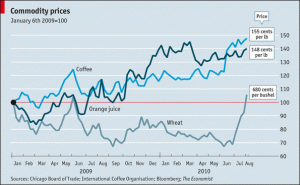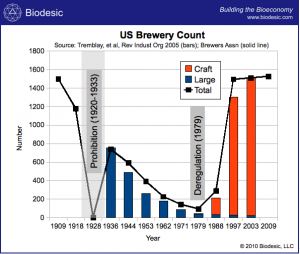- Best round up yet of what’s happening at Pavlovsk Experiment Station.
- Nature’s report on Pavlovsk is good too.
- Pavlovsk making waves in India too. S.Ananthanarayanan shares a write-up in The Statesman, Kolkata.
- More on that Chinese insect-eating fungus, or Chinese Love Flower. Yuck.
- A one-woman crusade for traditional African leafy vegetables. Right.
- Breadfruit trees in Jamaica. From the Trees that Feed Foundation, a new one on me.
Court decides against Pavlovsk but hope remains
We’ve just learned that the court has decided in favour of the federal housing authority to permit the destruction of the Pavlovsk Experiment Station’s field collection of fruit diversity. Some hope remains, however. The N.I. Vavilov Research Institute of Plant Industry (VIR) says it will today lodge an appeal with the High Arbitration Court against the Supreme Arbitration Court’s decision. This gains campaigners another month to save Pavlovsk.
A spokesman for VIR also said that they had received further confirmation that the Court’s decision can be revoked by the President or Prime Minister.
We don’t know whether either Mr Medvedev or Mr Putin is actually listening, but if you haven’t already done so, it can’t hurt to let them know how you feel.
Vegetable varieties of “no intrinsic value”
In England, the government is asking for views on vegetable varieties of ‘no intrinsic value for crop production but developed for growing under particular conditions’. They mean heritage and heirloom varieties, which could be promoted through Commission Directive 2009/145/EC on conservation and amateur varieties of vegetables, but we advise caution. Can worthless be far behind?
Seriously, let them know what you think.
Nibbles: Deregulation, Grapes, Bananas
- As with beer, so with beef. Gary argues for deregulation.
- Bring grapevines back to England, as ornamentals for the time being.
- Bacteria boost banana productivity.
It’s a data-rich day: breakfast and beer
 The Economist shows that the price of breakfast — if breakfast consists of coffee, toast (or some other wheat product) and orange juice — is going up. In other news, The Economist explains that while poor harvests are a factor, the price surge may be due as much to low interest rates as to low harvests. Investors are apparently looking for “investable markets”. Does that sound like speculation to You?
The Economist shows that the price of breakfast — if breakfast consists of coffee, toast (or some other wheat product) and orange juice — is going up. In other news, The Economist explains that while poor harvests are a factor, the price surge may be due as much to low interest rates as to low harvests. Investors are apparently looking for “investable markets”. Does that sound like speculation to You?
 And, in celebration of International Beer Day 1 there’s this fine chart showing the rise of craft breweries in the US. The blogger from whom I picked up the story says this is all down to Jimmy Carter deregulating the beer industry in 1979, but commenters there are not so sure. They’re wrong, and the internets prove it. That’s politics for you.
And, in celebration of International Beer Day 1 there’s this fine chart showing the rise of craft breweries in the US. The blogger from whom I picked up the story says this is all down to Jimmy Carter deregulating the beer industry in 1979, but commenters there are not so sure. They’re wrong, and the internets prove it. That’s politics for you.